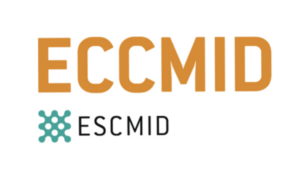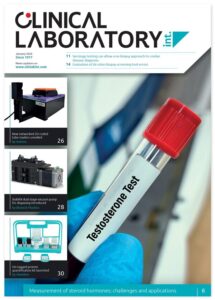Influential ECCMID 2023 sees numerous scientific presentations
Influential ECCMID 2023 sees numerous scientific presentations
The 33rd European Congress of Clinical Microbiology & Infectious Diseases (ECCMID) took place in Copenhagen, Denmark, 15-18 April 2023. With around 14,000 professional attendees ECCMID is the largest international meeting of clinical microbiologists and infectious diseases specialists.
The event included a comprehensive scientific programme, an industry programme and several poster presentations. Here we look at a selection of presentations.
Corticosteroid mortality risk
A study published in The Lancet and presented at ECCMID 2023 revealed that using higher doses of corticosteroids to treat hypoxic COVID-19 patients who require only oxygen therapy or no breathing support, as opposed to standard of care with low dose corticosteroids, is linked to a significantly (60%) higher risk of mortality.
The RECOVERY Collaborative Group, led by Prof Sir Peter Horby and Prof Sir Martin Landray from the University of Oxford, UK, previously conducted a study that demonstrated the efficacy of low-dose corticosteroids in reducing mortality for COVID-19 patients requiring oxygen or ventilatory support. Subsequently, starting from May 2021, the RECOVERY trial evaluated the use of higher doses of corticosteroids in this patient population. However, in May 2022, the independent Data Monitoring Committee recommended discontinuing this treatment assessment for patients who only required oxygen therapy or no breathing support. The trial is ongoing to further investigate the effects of high-dose corticosteroids for patients who require non-invasive or invasive mechanical ventilation.
The study enrolled adult patients with COVID-19 who met the criteria of having clinical evidence of hypoxia, including those receiving oxygen therapy or with oxygen saturation levels below 92% in room air. These eligible patients provided consent and were randomly assigned in a 1:1 ratio to two groups. The first group received usual care along with higher doses of corticosteroids, specifically dexamethasone at a dose of 20 mg once daily for 5 days followed by 10 mg once daily for 5 days or until discharge if sooner. The second group received the usual standard of care alone, which included dexamethasone at a lower dose of 6 mg once daily for 10 days or until discharge if sooner. The primary outcome measured was 28-day mortality among all participants who were randomly assigned to either group.
Between May 25, 2021, and May 13, 2022, a total of 1272 patients with COVID-19 and hypoxia, out of which eight (1%) did not receive any oxygen and 1264 (99%) received simple oxygen only, were randomly assigned to receive either usual care along with higher dose corticosteroids (659 patients) or usual care alone (613 patients, with 87% receiving low-dose corticosteroids during the follow-up period). Among those randomly assigned, 745 (59%) were located in Asia, 512 (40%) in the UK, and 15 (1%) in Africa. Out of the total, 248 (19%) had diabetes and 769 (60%) were male. The study found that 123 (19%) of the patients in the higher dose corticosteroid group and 75 (12%) of the patients in the usual care group died within 28 days, indicating a 60% increased risk of mortality in the higher dose corticosteroid group.
Additionally, the study found that there was an excess of pneumonia cases attributed to non-COVID infections in the higher-dose corticosteroid group, with 64 cases (10%) compared to 37 cases (6%) in the usual care group. Furthermore, there was an increase in hyperglycemia (high blood sugar episode) that required an increased insulin dose in the higher-dose corticosteroid group, with 142 cases (22%) compared to 87 cases (14%) in the usual care group. These findings suggest potential adverse effects associated with the use of higher-dose corticosteroids in patients with COVID-19 and hypoxia.
The authors of the study concluded that low-dose corticosteroids reduce the risk of death among hospitalized patients with COVID-19 who require oxygen or ventilatory support. However, among patients who only require simple oxygen, higher doses of corticosteroids were associated with an increased risk of death compared to low-dose corticosteroids. It remains uncertain whether the use of higher doses of corticosteroids is beneficial for patients requiring non-invasive or invasive ventilation, as the RECOVERY trial is ongoing and continues to study this aspect.






